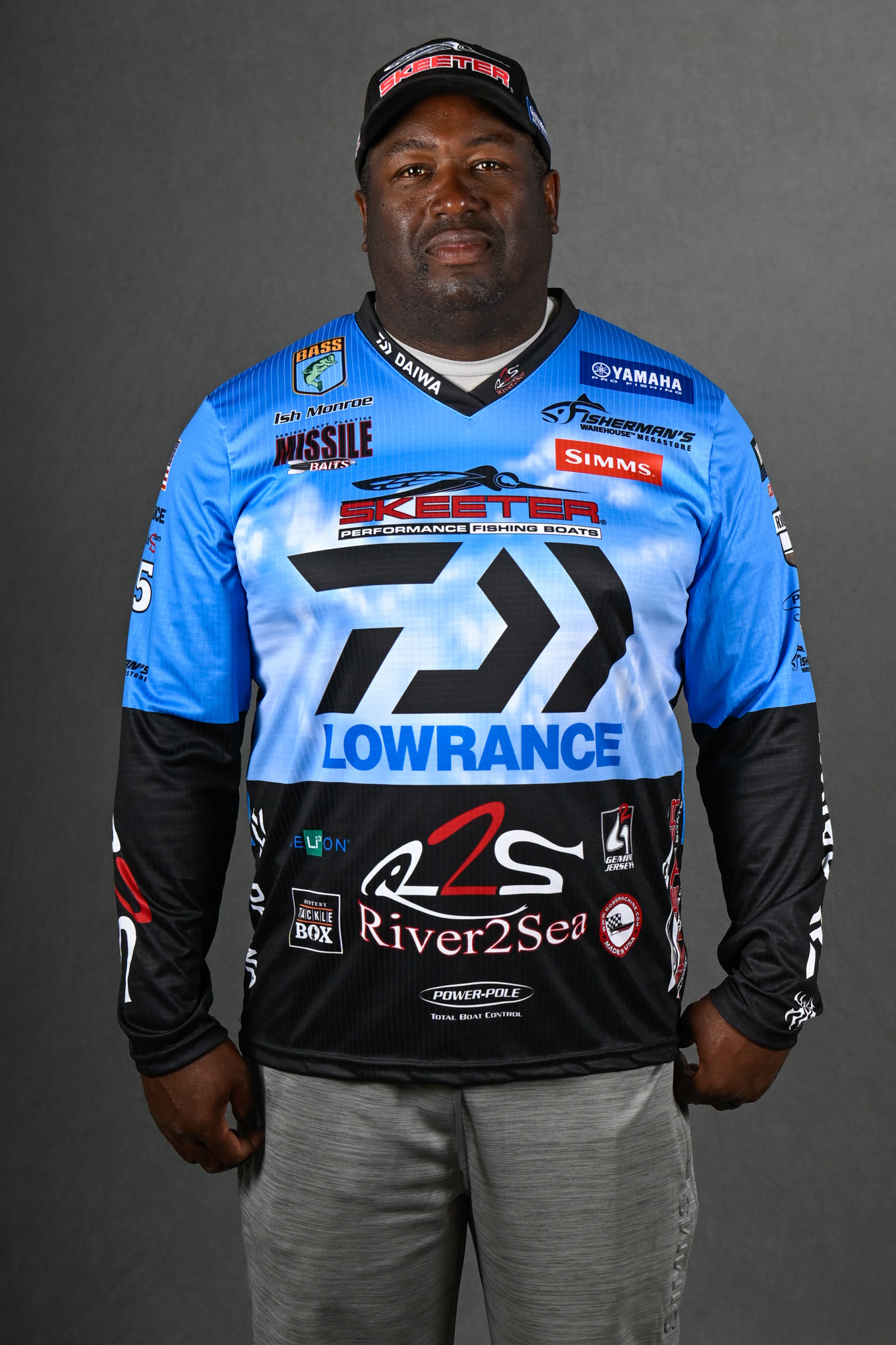“You can’t catch ‘em if they ain’t there.” How many times have you heard that? Plenty, I’m guessing. Take that to heart if you want to hunt big bass. Fishing on the wrong lake or river is a complete waste of time.
If you want a true giant where I live (California), you should be fishing south of Sacramento and in lakes where they stock trout. In South Texas set your sights on the biggest reservoirs with lots and lots of tilapia. On the east side of the state think big water with plenty of gizzard shad swimming around in it.
The South Carolina, Georgia and Florida area has plenty of water and plenty of shiners for them to eat. That’s a pretty good part of the country to fish if you can.
In the cooler regions — smallmouth mostly in and around the Great Lakes — gobies take care of their forage needs. And, in some of the other lakes around there (Minnesota and the surrounding states) the brown bass grow big eating bluegill, crappie and yellow perch. Farther south the smallies grow to record weights with a longer growing season and a solid food supply of gizzard shad, threadfin shad and alewives.
What all of these places have in common is a good forage base, big water and a longer growing season.
Big water matters because it gives the fish room to roam and decreases fishing and predator pressure. The more they can swim around and the less pressure they feel the easier they are to catch.
If you are interested in targeting giants, I’d say you should look to the biggest lakes in your area.
The longer growing season is pretty much self-evident. The more months a fish can stay active, feed and grow, the bigger he or she will get before they die of old age. When you think about this factor, don’t think south. Think warm. There’s a difference.
If you’re interested in targeting giants, I’d say you should look to the warmest places in your area.
A good forage base is also obvious. You don’t get big and fat without lots to eat and neither do bass. Fishing a lake or river with a forage problem makes no sense at all.
Another thing you might want to consider is the source of the forage. Hatchery trout like we have here in California are stupid. They grow up in tanks without predators around them. When they’re released they just swim around in open water until they get eaten. That makes a better forage base than natural tilapia, shiners or shad, all of which have a survival instinct and are harder for the bass to catch. That’s something that should factor into your hunt.
If you’re interested in targeting giants, I’d say you should look to places that have a lot of dumb forage.
My final thought about giant bass waters is to remember that “giant” is as much a term of art as it is science. Depending upon where you live a giant bass might weigh 6 pounds. Maybe there’s no such thing as a 10-pounder. The same idea is good for smallmouths and spots, too. Find the giants, but don’t go looking for something that doesn’t exist.
Next time we’ll talk about the mindset of the trophy hunter. Not everyone has what it takes.





